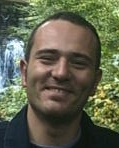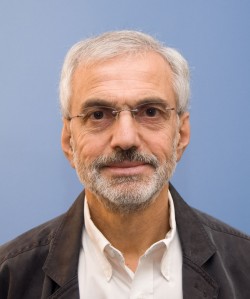Invited Talks
Program at a Glance
| September 09 (Sunday) | |||
|---|---|---|---|
| Time | What | Who | Where |
| 19:00 | Opening Reception and Registration | Info Desk and Boecklsaal | |
| September 10 (Monday) | |||
|---|---|---|---|
| Time | What | Who | Where |
| 08:00 - 09:00 | Registration | Info Desk | |
| 09:00 - 09:15 | Opening | HS 8, main building, TU Vienna | |
| 09:15 - 10:15 | Keynote: Semantic Matchmaking and Ranking: Beyond Deduction in Retrieval Scenarios | Tommaso Di Noia | |
| 10:15 - 11:00 | Coffee Break | Foyer | |
| 11:00 - 12:30 | Session 1: Rule Languages: Usage and Optimization | HS 8, main building, TU Vienna | |
| 12:30 - 14:30 | Lunch Break | Vienna | |
| 14:30 - 16:00 | Session 2: Distributed and Dynamic Data Access | HS 8, main building, TU Vienna | |
| 16:00 - 16:30 | Coffee Break | Foyer | |
| 16:30 - 17:45 | Session 3: Reasoning and the Web | HS 8, main building, TU Vienna | |
| September 11 (Tuesday) | |||
|---|---|---|---|
| Time | What | Who | Where |
| 09:00 - 10:00 | Keynote (with Datalog 2.0): A Retrospective on Datalog 1.0 | Phokion Kolaitis | HS 6, main building, TU Vienna |
| 10:00 - 10:30 | Coffee Break | Foyer | |
| 10:30 - 12:30 | Session 4: Non-standard Reasoning Tasks and Languages | HS 8, main building, TU Vienna | |
| 12:30 - 14:30 | Lunch Break, Doctoral Consortium Mentoring Lunch | Vienna | |
| 14:30 - 15:30 | Session 5: Reasoning with Uncertainty | HS 8, main building, TU Vienna | |
| 15:30 - 16:30 | Poster Session (incl. Coffee Break) | Foyer | |
| 16:30 - 17:30 | Plenary Talk (with COMMA and Datalog 2.0): Towards a Logic-Based, Unifying Framework for Computing | Robert Kowalski | HS 8, main building, TU Vienna |
| 19:00 | Social Dinner at Ristorante Settimo Cielo (Hotel Royal) | ||
| September 12 (Wednesday) | |||
|---|---|---|---|
| Time | What | Who | Where |
| 09:00 - 10:00 | Keynote (with Datalog 2.0): Datalog: A Perspective and the Potential | Yuri Gurevich | HS 6, main building, TU Vienna |
| 10:00 - 10:30 | Coffee Break | Foyer | |
| 10:30 - 12:10 | Session 6: Query Answering with Rules and Ontologies | HS 8, main building, TU Vienna | |
| 12:10 - 14:30 | Lunch Break | Vienna | |
| 14:30 - 15:50 | Session 7: Description Logics and Rules | HS 8, main building, TU Vienna | |
| 15:50 - 16:30 | Coffee Break | Foyer | |
| 16:30 - 17:30 | Keynote: Multi-Context Systems: Specifying the Interaction of Knowledge Bases Declaratively | Gerhard Brewka | |
| 17:30 - 18:10 | Session 8: Rule and Ontology Languages | HS 8, main building, TU Vienna | |
| 18:10 | Closing and Announcement of Best Paper | ||
Program Details
September 09 (Sunday)
19:00 (Opening Reception and Registration, Info Desk Festsaal)
September 10 (Monday)
08:00 - 09:00 (Registration, Info Desk)
09:00 - 09:15 (Opening, HS 8)
- 09:15 - 10:15 (Keynote, HS 8)
- Semantic Matchmaking and Ranking: Beyond Deduction in Retrieval Scenarios
- Tommaso Di Noia
10:15 - 11:00 Coffee Break
11:00 - 12:30 (Session 1: Rule Languages: Usage and Optimization, HS 8)
- 11:00 - 11:20
- Meta Programming with Answer Sets for Smart Spaces
- Tomi Janhunen and Vesa Luukkala
- 11:20 - 11:40
- Query Patterns for Existential Rules
- Cristina Civili and Riccardo Rosati
- 11:40 - 11:55
- Research Summary - Datalog-Based Data Access (Doctoral Consortium)
- Cristina Civili
- 11:55 - 12:15
- Deriving Predicate Statistics for Logic Rule
- Senlin Liang and Michael Kifer
- 12:15 - 12:30
- Non-Termination Analysis and Cost-Based Query Optimization of Logic Programs (Doctoral Consortium)
- Senlin Liang
12:30 - 14:30 Lunch Break
14:30 - 16:00 (Session 2: Distributed and Dynamic Data Access, HS 8)
- 14:30 - 14:50
- Distributed Ontology Based Data Access via Logic Programming
- Rosamaria Barilaro, Nicola Leone, Francesco Ricca and Giorgio Terracina
- 14:50 - 15:10
- Improving the Recall of Live Linked Data Querying through Reasoning
- Jürgen Umbrich, Aidan Hogan, Axel Polleres and Stefan Decker
- 15:10 - 15:30
- Ontology-Based Governance of Data-Aware Processes
- Diego Calvanese, Giuseppe De Giacomo, Domenico Lembo, Marco Montali and Ario Santoso
- 15:30 - 15:45
- When Data, Knowledge and Processes Meet Together (Doctoral Consortium)
- Ario Santoso
- 15:45 - 16:00
- Description Logic Knowledge Base Exchange (Doctoral Consortium)
- Elena Botoeva
16:00 - 16:30 Coffee Break
16:30 - 17:45 (Session 3: Reasoning and the Web, HS 8)
- 16:30 - 16:50
- (Re)Configuration Using Web Data: A Case Study on the Reviewer Assignment Problem
- Anna Ryabokon, Axel Polleres, Gerhard Friedrich, Andreas A. Falkner, Alois Haselböck and Herwig Schreiner
- 16:50 - 17:10
- Building Virtual Earth Observatories Using Ontologies and Linked Geospatial Data
- Manolis Koubarakis, Manos Karpathiotakis, Kostis Kyzirakos, Charalampos Nikolaou, Stavros Vassos, George Garbis, Michael Sioutis, Konstantina Bereta, Stefan Manegold, Martin Kersten, Milena Ivanova, Holger Pirk, Ying Zhang, Charalampos Kontoes, Ioannis Papoutsis, Themistoklis Herekakis, Dimitris Mihail, Mihai Datcu, Gottfried Schwarz, Octavian Dumitru, Daniela Molina, Katrin Molch, Ugo Giammatteo, Manuela Sagona, Sergio Perelli, Eva Klien, Thorsten Reitz and Robert Gregor
- 17:10 - 17:25
- A Quadratic Approach for Trend Detection in Folksonomies (Doctoral Consortium)
- Mohamed Nader Jelassi
- 17:25 - 17:45
- Argumentation and Voting for an Intelligent User Empowering Business Directory on the Web
- Valentinos Evripidou and Francesca Toni
September 11 (Tuesday)
- 09:00 - 10:00 (Keynote with Datalog 2.0, HS 6)
- A Retrospective on Datalog 1.0
- Phokion Kolaitis
10:00 - 10:30 Coffee Break
10:30 - 12:30 (Session 4: Non-standard Reasoning Tasks and Languages, HS 8)
- 10:30 - 10:50
- Towards a Unifying Approach to Representing and Querying Temporal Data in Description Logics
- Víctor Gutiérrez-Basulto and Szymon Klarman
- 10:50 - 11:10
- On the (Non-)Succinctness of Uniform Interpolation in General EL Terminologies
- Nadeschda Nikitina and Sebastian Rudolph
- 11:10 - 11:30
- On Definability and Redundancy in EL-TBoxes
- Denis Ponomaryov and Dmitry Vlasov
- 11:30 - 11:50
- The Definability Abduction Problem for Data Exchange (Abstract)
- Enrico Franconi, Nhung Ngo and Evgeny Sherkhonov
- 11:50 - 12:10
- A Mobile Reasoner for Semantic-Based Matchmaking
- Michele Ruta, Floriano Scioscia, Giuseppe Loseto, Filippo Gramegna and Eugenio Di Sciascio
12:10 - 14:30 Lunch Break and Doctoral Consortium Mentoring Lunch
14:30 - 15:30 Session 5: Reasoning with Uncertainty, HS 8
- 14:30 - 14:50
- A Tableau Algorithm for Fuzzy Description Logics over Residuated De Morgan Lattices
- Stefan Borgwardt and Rafael Peñaloza
- 14:50 - 15:10
- Consistent Answers in Probabilistic Datalog+/- Ontologies
- Thomas Lukasiewicz, Maria Vanina Martinez and Gerardo I. Simari
- 15:10 - 15:30
- 4 Poster Announcement
15:30 - 16:30 (Poster Session incl. Coffee Break, Foyer)
- 16:30 - 17:30 (Plenary Talk with COMMA and Datalog 2.0, HS 8)
- Towards a Logic-Based, Unifying Framework for Computing
- Robert Kowalski
19:00 (Social Dinner, Ristorante Settimo Cielo)
September 12 (Wednesday)
- 09:00 - 10:00 (Keynote with Datalog 2.0, HS 6)
- Datalog: A Perspective and the Potential
- Yuri Gurevich
10:00 - 10:30 Coffee Break
10:30 - 12:30 (Session 6: Query Answering with Rules and Ontologies, HS 8)
- 10:30 - 10:50
- A Sound and Complete Backward Chaining Algorithm for Existential Rules
- Mélanie König, Michel Leclère, Marie-Laure Mugnier and Michaël Thomazo
- 10:50 - 11:10
- Query Rewriting under Ontology Contraction
- Eleni Tsalapati, Giorgos Stoilos, Giorgos Stamou and George Koletsos
- 11:10 - 11:30
- An Update on Query Answering with Restricted Forms of Negation
- Víctor Gutiérrez-Basulto, Yazmín Angélica Ibáñez-García and Roman Kontchakov
- 11:30 - 11:50
- Ontology-Based Data Access Using Views
- Juan F. Sequeda, Marcelo Arenas and Daniel P. Miranker
- 11:50 - 12:10
- Toward Scalable Reasoning over Annotated RDF Data Using MapReduce
- Chang Liu and Guilin Qi
12:10 - 14:30 Lunch Break
14:30 - 15:50 Session 7: Description Logics and Rules, HS 8
- 14:30 - 14:50
- On Integrating Description Logics and Rules under Minimal Hypotheses
- Anees Mehdi, Alexandre Miguel Pinto and Sebastian Rudolph
- 14:50 - 15:10
- Recent Advances in Integrating OWL and Rules (Technical Communication)
- Matthias Knorr, David Carral Martínez, Pascal Hitzler, Adila Krisnadhi, Frederick Maier and Cong Wang
- 15:10 - 15:30
- A Tableau Algorithm for Description Logics with Nominal Schema
- Adila Krisnadhi and Pascal Hitzler
- 15:30 - 15:50
- Rule-Based Context Assessment in Smart Cities
- Beibei Hu, Theodore Patkos, Abdelghani Chibani and Yacine Amirat
15:50 - 16:30 Coffee Break
- 16:30 - 17:30 (Keynote, HS 8)
- Multi-Context Systems: Specifying the Interaction of Knowledge Bases Declaratively
- Gerhard Brewka
17:30 - 18:10 (Session 8: Rule and Ontology Languages, HS 8)
- 17:30 - 17:50
- Semantic Independence in DL-Programs
- Thomas Eiter, Michael Fink and Daria Stepanova
- 17:50 - 18:10
- A Polynomial Reduction from ASPDA to ASP
- Wolfgang Faber
18:10 - 18:30 (Closing incl. announcement of best paper)
Invited Talks Descriptions
Gerhard Brewka
Multi-Context Systems: Specifying the Interaction of Knowledge Bases Declaratively
In this talk we give an overview on multi-context systems (MCS) with a special focus on their recent nonmonotonic extensions.
MCS provide a flexible, principled account of integrating heterogeneous knowledge sources (also called contexts), a task that is becoming more and more relevant given the wealth of formalisms used nowadays to represent knowledge. By a knowledge source we mean a knowledge base (KB) formulated in any of the typical knowledge representation languages, including classical logic, description logics, modal or temporal logics, but also nonmonotonic formalisms like logic programs under answer set semantics or default logic. The basic idea is to describe the information flow among different KBs declaratively, using so-called bridge rules which may refer in their bodies to other contexts. The semantics of MCS is based on the definition of an equilibrium.
We will motivate the need for such systems, describe what has been achieved in this area, discuss work in progress and describe generalizations of the original framework which we consider highly useful, in particular managed MCS where bridge rules may not only augment the information of a particular context, but also perform operations like revision, deletion etc. This is joint work with Thomas Eiter, Michael Fink and Antonius Weinzierl.
Biography
 Gerhard Brewka got his Ph.D. in Computer Science from University of Hamburg in 1989. After some years at the Artificial
Intelligence Group of GMD, Sankt Augustin, and a stay at the International Computer Science Institute, Berkeley,
he became full professor for Knowledge Based Systems at Technical University of Vienna. Since 1996 he is full professor
for Intelligent Systems at Leipzig University. His research interests cover various aspects of knowledge representation,
in particular nonmonotonic reasoning, logic programming and answer set programming, preference and inconsistency handling,
reasoning about action, argumentation and multi-context systems. Brewka directed Leipzig's Doctoral Program in Knowledge
Representation. He was program chair of various international conferences (NMR1998, JELIA 2000, ECAI 2006, LPNMR 2007,
KR 2008) and is general chair of KR 2012. He is the current president of ECCAI, the European Coordinating Committee on
Artificial Intelligence.
Gerhard Brewka got his Ph.D. in Computer Science from University of Hamburg in 1989. After some years at the Artificial
Intelligence Group of GMD, Sankt Augustin, and a stay at the International Computer Science Institute, Berkeley,
he became full professor for Knowledge Based Systems at Technical University of Vienna. Since 1996 he is full professor
for Intelligent Systems at Leipzig University. His research interests cover various aspects of knowledge representation,
in particular nonmonotonic reasoning, logic programming and answer set programming, preference and inconsistency handling,
reasoning about action, argumentation and multi-context systems. Brewka directed Leipzig's Doctoral Program in Knowledge
Representation. He was program chair of various international conferences (NMR1998, JELIA 2000, ECAI 2006, LPNMR 2007,
KR 2008) and is general chair of KR 2012. He is the current president of ECCAI, the European Coordinating Committee on
Artificial Intelligence.
Tommaso Di Noia
Semantic Matchmaking and Ranking: Beyond Deduction in Retrieval Scenarios
Matchmaking can be basically seen as the process of computing a ranked list of resources with respect to a given query. Semantic matchmaking can be hence described as the process of computing such ordered list also taking into account the semantics of resources description and of the query, provided with reference to a logic theory (an ontology, a set of rules, etc.). A matchmaking step is fundamental in a number of retrieval scenarios spanning from (Web) service discovery and composition to e-commerce transactions up to recruitment in human resource management for task assignment, just to cite a few of them. Also in interactive exploratory tasks, matchmaking and ranking play a fundamental role in the selection of relevant resources to be presented to the user and, in case, further explored. In all the above mentioned frameworks, the user query may contain only hard (strict) requirements or may represent also her preferences.
In this talk we will see how to use not only deductive reasoning tasks, e.g., subsumption and consistency checking, while computing the ranked list of most promising resources with respect to a query (with preferences).
Biography
 Tommaso Di Noia is Assistant Professor at Politecnico di Bari (Italy) since January 2005. His research interests are Semantic Information Retrieval and Matchmaking, Knowledge Representation Systems, Electronic Commerce, Skill Matching, Non Standard Reasoning, Linked Data, Internet of Things and Preference Representation and Reasoning. The research of Tommaso Di Noia initially focused on solutions both to theoretical and to practical issues in semantic-enabled P2P resource retrieval scenarios and automated reasoning. The investigation has been mainly devoted to electronic commerce, business process management, (Web) service discovery and decision support systems for skill management in recruiting agencies. Then, driven by the results reached in the field of electronic commerce, he moved to studying how to apply knowledge representation techniques and tools to automated negotiations among rational agents with preferences. More recently, he started the investigation of how to browse and visualize semantic Linked Data for exploratory tasks.
Tommaso Di Noia is Assistant Professor at Politecnico di Bari (Italy) since January 2005. His research interests are Semantic Information Retrieval and Matchmaking, Knowledge Representation Systems, Electronic Commerce, Skill Matching, Non Standard Reasoning, Linked Data, Internet of Things and Preference Representation and Reasoning. The research of Tommaso Di Noia initially focused on solutions both to theoretical and to practical issues in semantic-enabled P2P resource retrieval scenarios and automated reasoning. The investigation has been mainly devoted to electronic commerce, business process management, (Web) service discovery and decision support systems for skill management in recruiting agencies. Then, driven by the results reached in the field of electronic commerce, he moved to studying how to apply knowledge representation techniques and tools to automated negotiations among rational agents with preferences. More recently, he started the investigation of how to browse and visualize semantic Linked Data for exploratory tasks.
Yuri Gurevich
Datalog: A Perspective and the Potential
To be announced.
Joint talk with Datalog 2.0.
Biography
Phokion Kolaitis
A Retrospective on Datalog 1.0
Datalog was introduced in the early 1980s as a database query language that embodies a recursion mechanism on relational databases and, thus, overcomes some of the inherent limitations in the expressive power of relational algebra and relational calculus. In the ensuing decade, Datalog became the subject of an in-depth investigation by researchers in database theory. This study spanned a wide spectrum of topics, including query processing and optimization of Datalog programs, the delineation of the expressive power and computational complexity of Datalog queries, and the exploration of the semantics and the expressive power of extensions of Datalog with comparison operators and negation. The investigation of these topics entailed extensive interaction of database theory with finite model theory and, in particular, with finite-variable logics and pebble games suitable for analyzing the expressive power of Datalog and its variants. From the early 1990s on, there has been a fruitful and far-reaching interaction between Datalog and constraint satisfaction; this interaction, which continues today, has contributed to the understanding of tractable cases of the constraint satisfaction problem, but has also given rise to new results about the expressive power and the computational complexity of Datalog queries.
The aim of this talk is to reflect on some of the aforementioned topics, high- light selected results, and speculate on future uses and applications of Datalog.
Joint talk with Datalog 2.0.
Biography
 Phokion Kolaitis is a Distinguished Professor of Computer Science at UC Santa Cruz and a Research Staff Member of the Computer Science Principles and Methodologies Department (a.k.a. the Theory Group) at the IBM Almaden Research Center. From July 1997 to June 2001, he served as Chair of the Computer Science Department at UC Santa Cruz. From June 2004 to September 2008, he served as Senior Manager of the Computer Science Principles and Methodologies Department at the IBM Almaden Research Center (and while on leave of absence from UC Santa Cruz). His research interests include principles of database systems, logic in computer science, and computational complexity.
Kolaitis is a Fellow of the American Association for the Advancement of Science (AAAS) , a Fellow of the Association for Computing Machinery (ACM), a Foreign Member of the Finnish Academy of Science and Letters, and the recipient of a 1993 Guggenheim Fellowship. He is also the recipient of an IBM Research Division Outstanding Innovation Award, an IBM Research Division Outstanding Technical Achievement Award, and a co-winner of the 2008 ACM POS Alberto O. Mendelzon Test-of-Time Award.
Phokion Kolaitis is a Distinguished Professor of Computer Science at UC Santa Cruz and a Research Staff Member of the Computer Science Principles and Methodologies Department (a.k.a. the Theory Group) at the IBM Almaden Research Center. From July 1997 to June 2001, he served as Chair of the Computer Science Department at UC Santa Cruz. From June 2004 to September 2008, he served as Senior Manager of the Computer Science Principles and Methodologies Department at the IBM Almaden Research Center (and while on leave of absence from UC Santa Cruz). His research interests include principles of database systems, logic in computer science, and computational complexity.
Kolaitis is a Fellow of the American Association for the Advancement of Science (AAAS) , a Fellow of the Association for Computing Machinery (ACM), a Foreign Member of the Finnish Academy of Science and Letters, and the recipient of a 1993 Guggenheim Fellowship. He is also the recipient of an IBM Research Division Outstanding Innovation Award, an IBM Research Division Outstanding Technical Achievement Award, and a co-winner of the 2008 ACM POS Alberto O. Mendelzon Test-of-Time Award.
Robert Kowalski
Towards a Logic-based, Unifying Framework for Computing
Computing, as a scientific discipline, lacks a unifying framework. It consists, instead, of diverse techniques in such various areas as programming, databases, and artificial intelligence.
Logic programming was an early attempt to provide a unifying framework for computing, based on the use of logic for knowledge representation and problem- solving. This attempt had only limited success, arguably because it failed to address adequately the fundamental role of state transition systems in computing.
In this talk, I sketch a logic-based framework for state transition systems, in which states can variously represent sets of shared variables, relational databases, Herbrand models, or mental representations of the real world. Given an initial set of goals, the computational task is to solve the goals by generating an appropriate sequence of actions and associated state transitions. Logically, the task is to make the goals true by generating a model of the goals with an explicit representation of time. Operationally, the task is solved by maintaining only the current state and updating it destructively. Frame axioms, which express that any facts not affected by an action persist from one state to the next state, are true in the model, but are not used operationally to generate it.
Joint talk with COMMA and Datalog 2.0.
Biography
 Robert Kowalski was a research fellow at the University of Edinburgh (1970-75) and has been at Imperial College London since 1975, attaining a chair in Computational Logic in 1982 and becoming Emeritus Professor in 1999. He was inducted as a Fellow of the American Association for Artificial Intelligence in 1991, of the European Co-ordinating Committee for Artificial Intelligence in 1999, and the Association for Computing Machinery in 2001.
He began his research in the field of automated theorem proving, developing both SL-resolution with Donald Kuehner and the connection graph proof procedure. However, he is best known for his contributions to the development of logic programming, starting with the procedural interpretation of Horn clauses.
He also developed the minimal model and the fixpoint semantics of Horn clauses with Maarten van Emden. With Marek Sergot, he developed both the event calculus and the application of logic programming to legal reasoning. With Fariba Sadri, he developed an agent model in which beliefs are represented by logic programs and goals are represented by integrity constraints.
Kowalski was one of the early developers of Abductive Logic Programming, in which logic programs are augmented with integrity constraints and with undefined, abducible predicates. This work led to the demonstration with Phan Minh Dung and Francesca Toni that most logics for default reasoning can be regarded as special cases of assumption-based argumentation.
(Taken from Wikipedia)
Robert Kowalski was a research fellow at the University of Edinburgh (1970-75) and has been at Imperial College London since 1975, attaining a chair in Computational Logic in 1982 and becoming Emeritus Professor in 1999. He was inducted as a Fellow of the American Association for Artificial Intelligence in 1991, of the European Co-ordinating Committee for Artificial Intelligence in 1999, and the Association for Computing Machinery in 2001.
He began his research in the field of automated theorem proving, developing both SL-resolution with Donald Kuehner and the connection graph proof procedure. However, he is best known for his contributions to the development of logic programming, starting with the procedural interpretation of Horn clauses.
He also developed the minimal model and the fixpoint semantics of Horn clauses with Maarten van Emden. With Marek Sergot, he developed both the event calculus and the application of logic programming to legal reasoning. With Fariba Sadri, he developed an agent model in which beliefs are represented by logic programs and goals are represented by integrity constraints.
Kowalski was one of the early developers of Abductive Logic Programming, in which logic programs are augmented with integrity constraints and with undefined, abducible predicates. This work led to the demonstration with Phan Minh Dung and Francesca Toni that most logics for default reasoning can be regarded as special cases of assumption-based argumentation.
(Taken from Wikipedia)
![[Logo]](images/RR2012-small.png)
![[photo Wien]](images/photo-leitmotif-fragment02.png)
![[logo AI Journal]](images/ARTINT_Logo2_c_web_more.jpg)
![[logo ALP]](images/ALP_logo.jpg)
![[logo DERI]](images/DERI_brandmark.png)
![[logo DIST]](images/logo-dist2.png)
![[logo NUIG]](images/NUIGalway_Logo_English_240.png)
![[logo NSF]](images/nsf1.jpg)
![[logo SIEMENS]](images/sie_logo_petrol_rgb.png)
![[logo VCLA]](images/VCLA_main_logo_2_RGB.png)
![[logo WPI]](images/logo-wpi.jpg)
![[logo DLVSYSTEM]](images/dlvsystem_logo.png)
![[logo IOS]](images/IOS-circle.png)
![[logo KGS]](images/KGS-logo.jpg)
![[logo PlanetData]](images/PlanetData_logo.png)
![[logo TU Wien]](images/informatik-bildmarke.png)
![[logo TU Wien KBS]](images/logo_KBS_1_163x60.png)